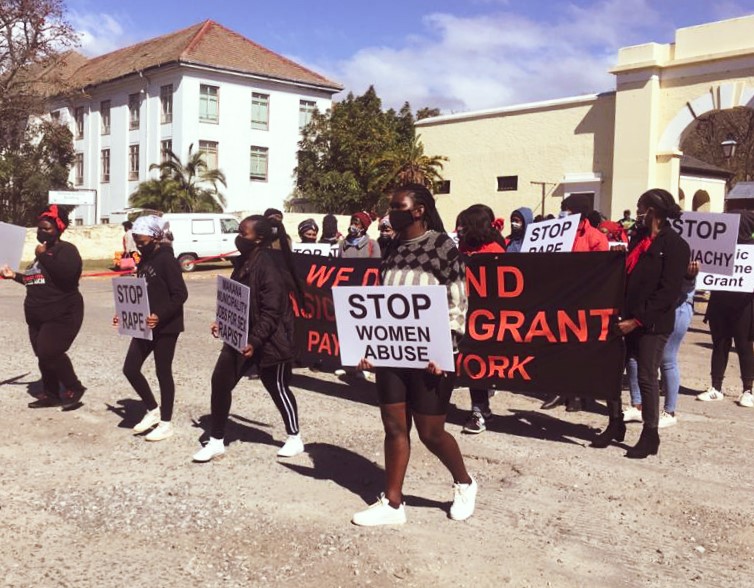By ROCHELLE THOMAS
There were many explanations for the violent unrest that upended large swathes of Kwa-Zulu Natal and Gauteng in July: cynical ethnic mobilisation by Zuma loyalists, opportunistic criminality, mob rule.
But, for the group of womxn that formed #CodeRed in the wake of the mayhem, these analyses lacked a feminist perspective.
They asked, “How would a feminist who believes in a socially just, equitable and womxn-centred society look at these riots?” Soon after, they drew up their feminist statement.

For them, the answers lay in South Africa’s deep social inequities. The needs of the poor are being overlooked – and for #CodeRed, women bear the brunt of this poverty.
Esther Ramani, the local convenor of the movement in Makhanda, said, “The face of poverty in South Africa is a woman’s face because they are the ones who have to manage their families, the education of their children, and their everyday life on very few resources.”
Women earn 30% less than men in the same job and bear the brunt of the unemployment crisis.
“Successive administrations in government fail to see that this violence is systemic. The July Riots were not random acts that happened because of some trigger, but because of the systemic violence faced by millions of women and the LGBTQ+ community.”
#CodeRed took a stand – not as a movement fixated on growing membership figures but as a partner with any organisation that endorsed their feminist vision and manifesto.
In August, #CodeRed collaborated with the Unemployed People’s Movement (UPM) and protested to reiterate their demands. Escorted by police, a group of 100 feminists from all walks of life came together in a bid to “Reclaim Womxn’s Month”. Their bright red t-shirts were hard to miss as they walked through Makhanda’s streets.

One protester said: The issue of gender-based violence is too much, unemployment is high”,
Ramani said she was impressed with the organised and caring way the march occurred. “The aim was to put the #CodeRed Feminist Collective into public space: “We wanted to tell the country, ‘We are here! We are not going anywhere, and we will fight for these demands!'”
The collective is now organising empowerment workshops. “We will be working toward educating ourselves about what we need to know and what we need to do to bring about the South Africa of our dreams”.




